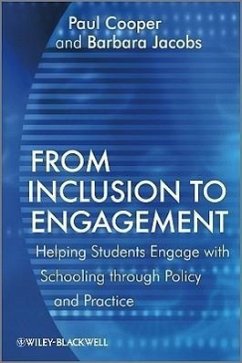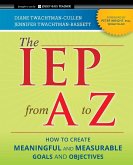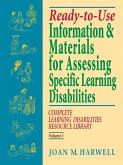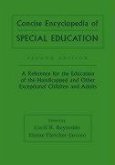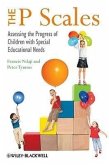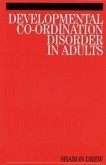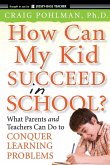What is wrong with the practice of inclusive education? And what can be done to help schools and staff to become more effective in catering to the needs of the widest range of students? These questions are at the heart of From Inclusion to Engagement, a book which challenges the rhetoric that has come to dominate so much of the academic discourse on inclusive education. The authors call for an immediate shift in focus from this destructive paradigm towards a more inclusive theoretical approach - one that favours research-based knowledge about what actually works. At the core of their argument is the concept of 'educational engagement', an approach that addresses the explicit social and educational experiences of students while avoiding the ideological barriers that often cloud our judgment. The book also presents the first comprehensive account of evidence-based interventions for promoting the educational engagement of students with - or at risk of developing - Social, Emotional, and Behavioural Difficulties (SEBD). From Inclusion to Engagement offers invaluable insights into how to meet the challenges of a complex issue and realise the full potential of inclusive education.
Hinweis: Dieser Artikel kann nur an eine deutsche Lieferadresse ausgeliefert werden.
Hinweis: Dieser Artikel kann nur an eine deutsche Lieferadresse ausgeliefert werden.
This is a very timely and welcome book which thoroughly addressesthe issue of inclusion in education, especially as regards pupilswith social, emotional and behavioural difficulties. It critiques'universalist inclusion', which is taken to deny thevalue of positively-used labels and specialist provision. It arguesfor an 'engagement model' which sees inclusion as allpupils participating in learning, not necessarily in the sameordinary school classrooms. This is a book to read for all thoseinterested in theory and practice in the field.
--Brahm Norwich, Professor of Educational Psychologyand Special Educational Needs, University of Exeter, UK
In this book the authors provide a thoughtful and stimulatingexamination of how our more vulnerable pupils are viewed. Afterexamining the labeling issue, the authors make interventionrecommendations based on the latest research evidence. In sum, theauthors acknowledge there are a multitude of approaches andemphasize that the ultimate goal is to devise practices that make areal difference in the lives of the students being served.
--Lyndal M. Bullock, Regents Professor, SpecialEducation, University of North Texas, USA
Inclusion is a key problem for teachers worldwide. Reading thisbook will help them find some practical answers.
--Maurice Galton, Senior Research/Teaching Fellow,University of Cambridge, UK
--Brahm Norwich, Professor of Educational Psychologyand Special Educational Needs, University of Exeter, UK
In this book the authors provide a thoughtful and stimulatingexamination of how our more vulnerable pupils are viewed. Afterexamining the labeling issue, the authors make interventionrecommendations based on the latest research evidence. In sum, theauthors acknowledge there are a multitude of approaches andemphasize that the ultimate goal is to devise practices that make areal difference in the lives of the students being served.
--Lyndal M. Bullock, Regents Professor, SpecialEducation, University of North Texas, USA
Inclusion is a key problem for teachers worldwide. Reading thisbook will help them find some practical answers.
--Maurice Galton, Senior Research/Teaching Fellow,University of Cambridge, UK

